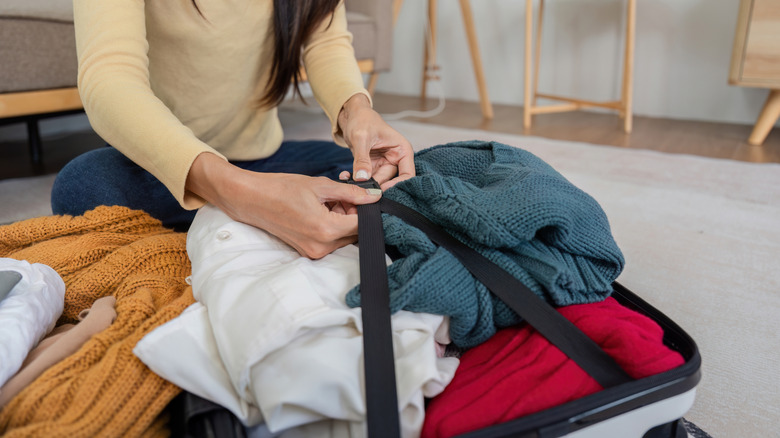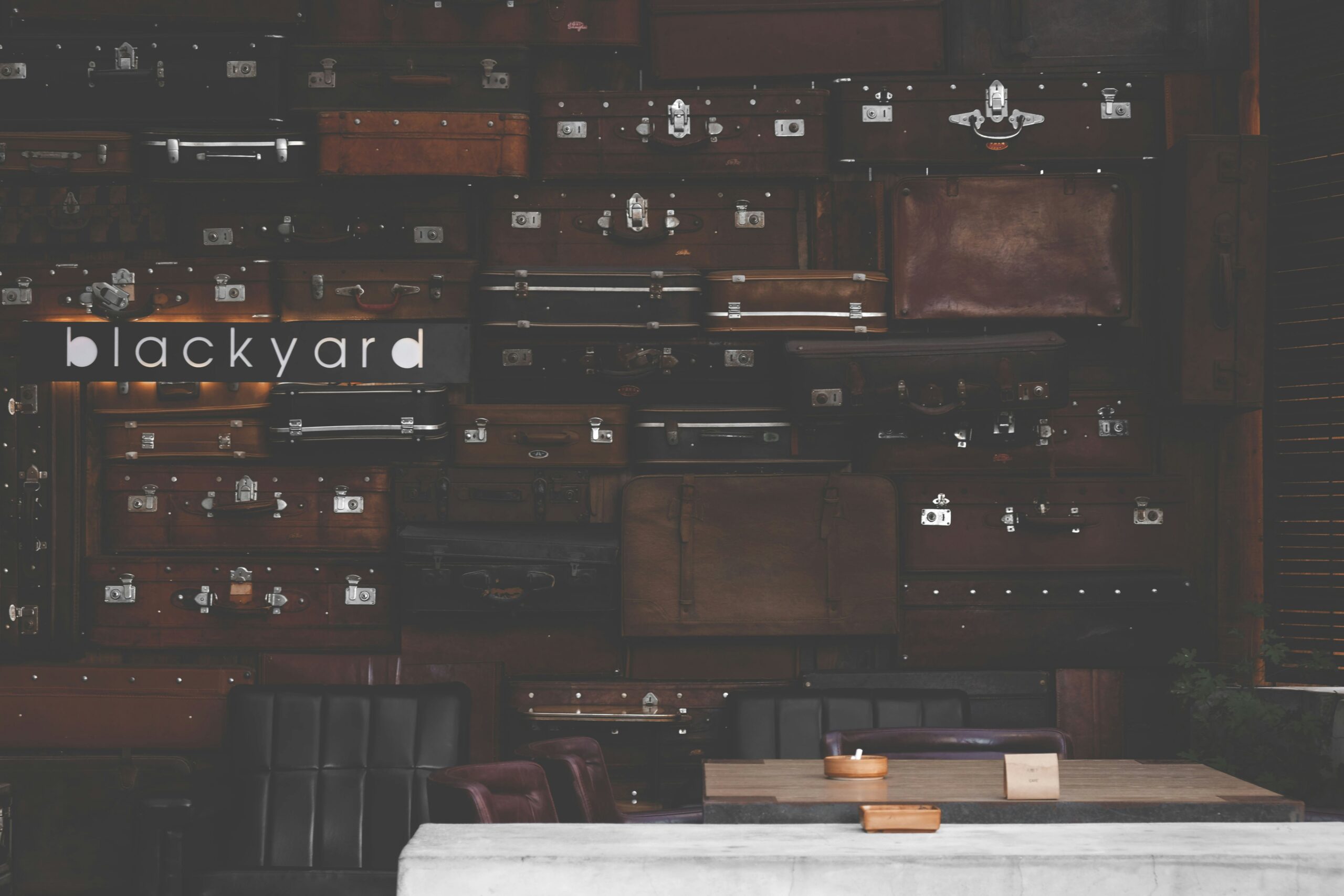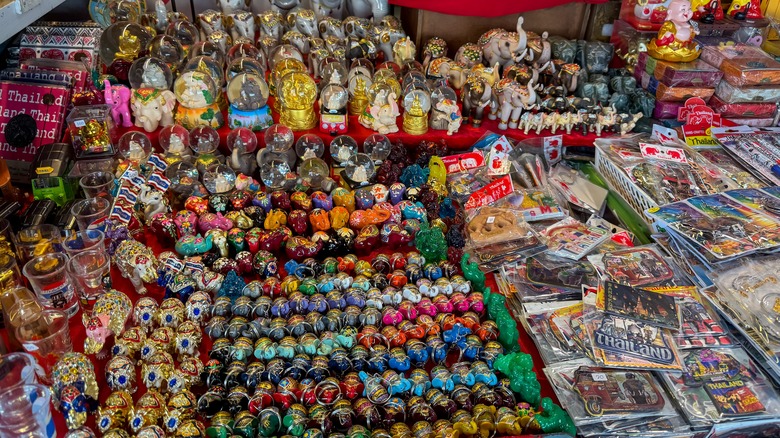EACHY Travel Makeup Bag,Large Capacity Cosmetic Bags for Women,Waterproof Portable Pouch Open Flat Toiletry Bag Make up Organizer with Divider and Handle
$23.99 (as of April 7, 2025 11:41 GMT +00:00 - More info)Have you ever found yourself enchanted by the rich, aromatic allure of coffee while traveling? If you’re an avid coffee lover, it’s only natural you’d want to bring some of that exquisite roasted goodness back home. From the lush, volcanic soils of Kona in Hawaii to the highlands of Colombia, coffee makes a fantastic souvenir. But, as charming as it may be, traveling with coffee can sometimes lead to unexpected complications at airport security.
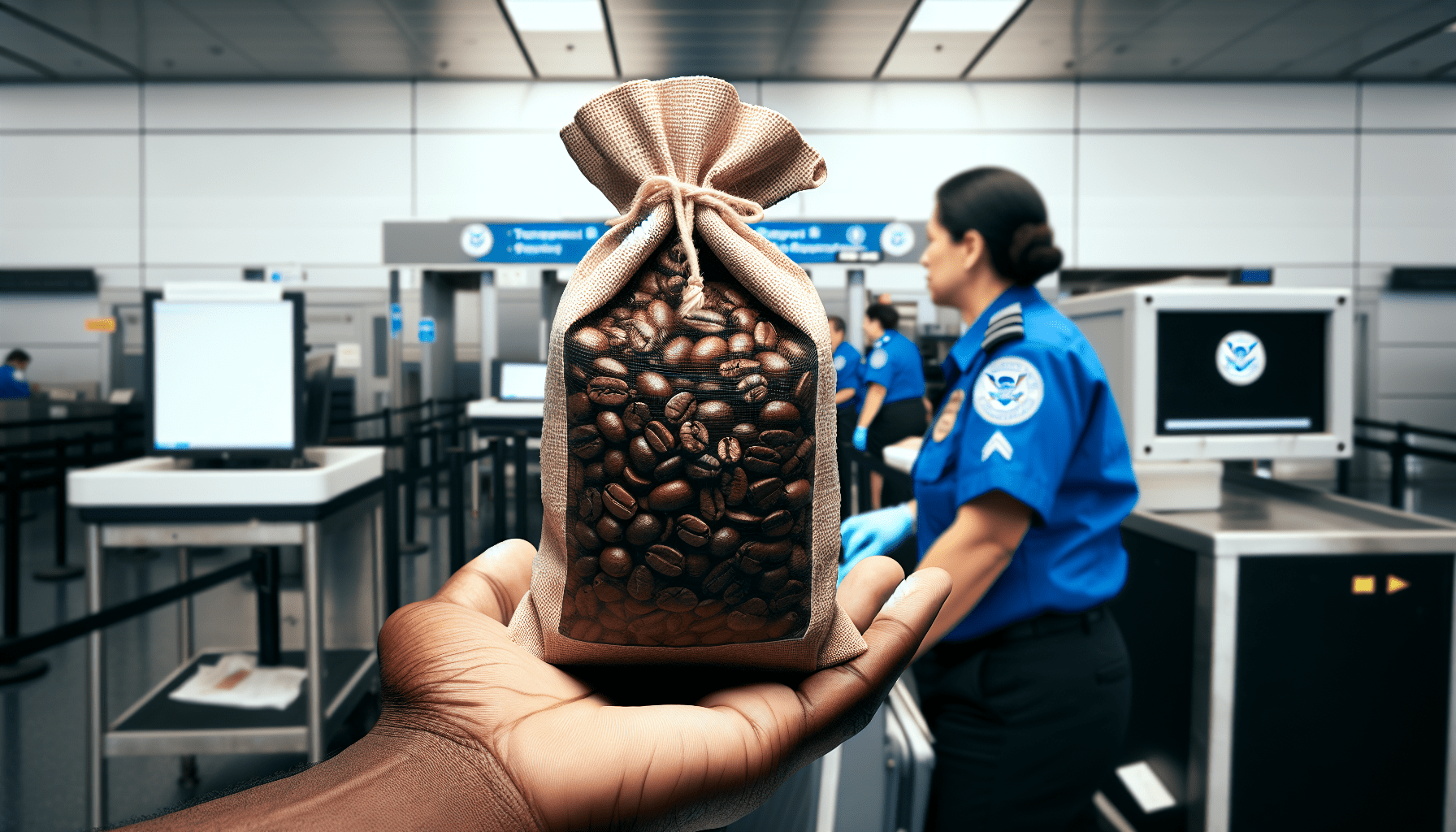
Shop These Accessories for a Comfortable Trip
Why Coffee Can Raise Eyebrows at Airport Security
So, why does a simple bag of coffee beans cause so much drama? Believe it or not, the issue mainly boils down to how drug smugglers have historically used coffee to conceal illegal substances.
Coffee and Drug Smuggling
It turns out that coffee, with its strong aroma, is an old trick in the smuggler’s handbook to throw off drug-sniffing dogs and security officers. Because of this, even a few innocuous bags of coffee in your carry-on can lead to increased scrutiny from Transportation Security Administration (TSA) officers.
The Powdered Dilemma
Coffee grounds come with their own set of challenges. When something is finely ground, it might be mistaken for an explosive substance. This is true not just for coffee but also for other powders like medicine. If you’ve ever been tagged for a closer inspection because of your bag of ground coffee, this may be why.
What to Expect When Your Coffee Is Inspected
Once you’ve got a grasp on why coffee can be a red flag, it’s helpful to know what to expect when TSA decides to give your java a closer look.
Allowable Coffee Packaging
You’re allowed to pack coffee beans and grounds in both your carry-on and checked baggage. However, these items may be subject to inspection.
| Coffee Form | Carry-On Luggage | Checked Baggage |
|---|---|---|
| Whole Beans | Yes | Yes |
| Ground Coffee | Yes | Yes |
To minimize hassle, keep your coffee separate from other items and ready for inspection. If your coffee is in ground form, consider sticking to 12 ounces (350 milliliters) or less if it’s in your carry-on. Going over this amount could result in extra screening, and potentially even confiscation if an officer is not satisfied with the inspection.
The Inspection Process
During additional airport screenings, TSA officers will need to confirm that your coffee doesn’t hide any restricted substances. This often involves opening your packages, even if they’re factory-sealed. Officers typically perform a swab test to detect the presence of explosives. If your coffee tests negative, you’re free to head to your gate. However, don’t be surprised if this procedure also includes a pat-down or a more thorough search of your belongings as part of the security protocol.
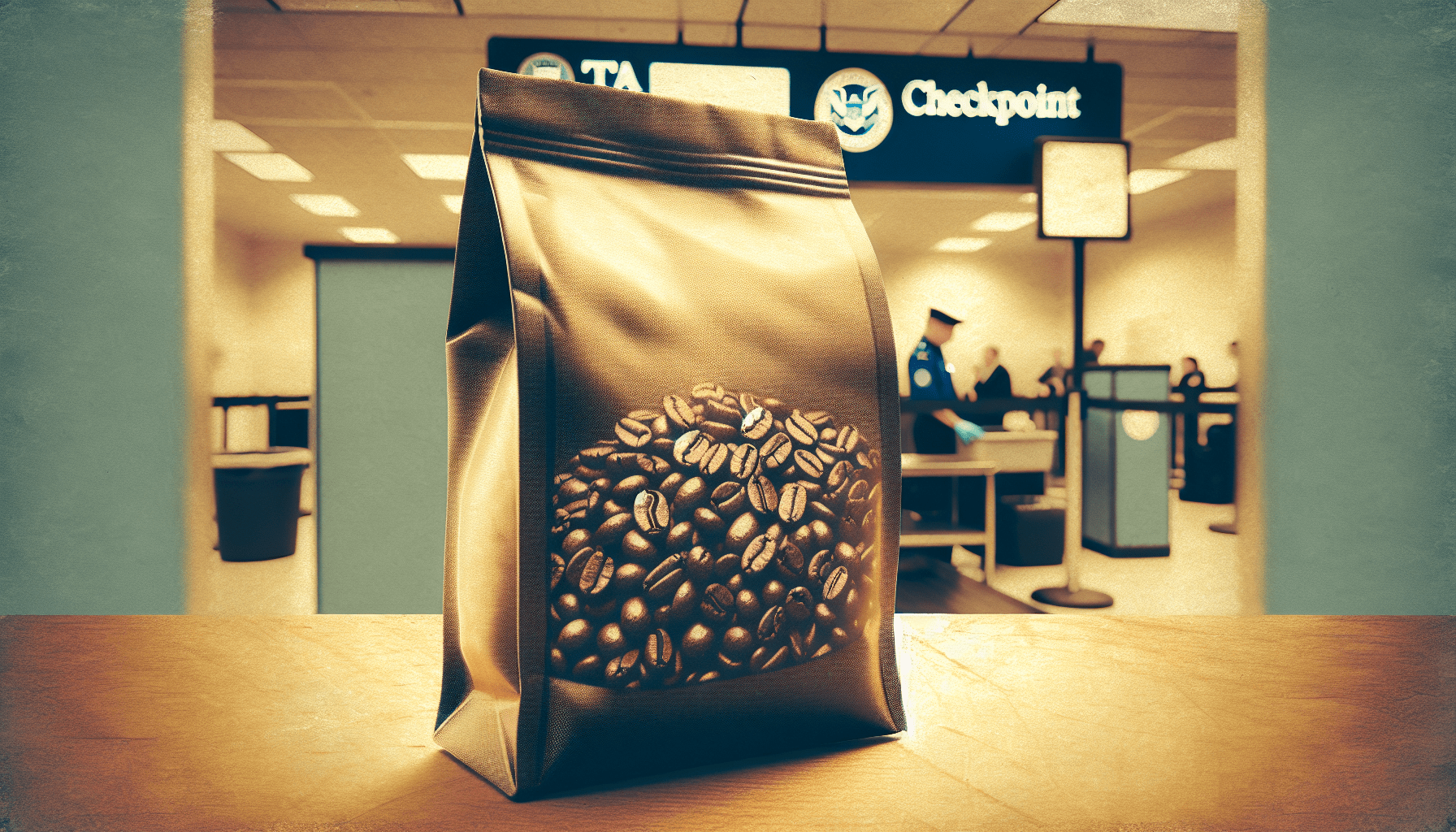
Shop These Accessories for a Comfortable Trip
Declaring Coffee at Customs
Navigating customs is another hurdle that coffee enthusiasts might overlook. While bringing coffee into the United States isn’t prohibited, it still needs to be declared.
Types of Coffee and Restrictions
Different forms of coffee have varying regulations:
| Coffee Product | Entry Restrictions | Notes |
|---|---|---|
| Roasted Coffee | Allowed in unlimited quantities | Applicable at all U.S. ports |
| Unroasted Coffee | Forbidden in Hawaii and Puerto Rico | Unprocessed beans/seeds cannot enter U.S. territories |
| Coffee Berries | Prohibited in all U.S. ports | No quantity allowed |
For roasted coffee, you’re in the clear pretty much anywhere in the United States. Unroasted coffee beans, however, are a no-go for places like Hawaii and Puerto Rico due to agricultural restrictions. And coffee berries? They won’t be allowed in any U.S. port.
Consequences of Non-Declaration
If you fail to declare your coffee upon entering the U.S., several things might happen:
- Confiscation: Customs can seize your undeclared coffee.
- Fines: You could face a financial penalty.
- Increased Scrutiny: Future trips may involve more rigorous inspections.
- Loss of Travel Benefits: If you have perks like Global Entry or TSA PreCheck, these could be revoked.
To play it safe, make sure to declare your coffee and any other agricultural goods before leaving the baggage claim area. Simply let the customs officers know that you’re carrying coffee as a souvenir.
Tips for Hassle-Free Coffee Souvenirs
Want to make your airport experience smoother while still bringing home your coffee treasure? Here are some handy tips:
Packaging
- Original Packaging: Keep coffee in its original, sealed packaging to avoid unnecessary suspicion.
- Clear Containers: If you need to transfer coffee into another container, use transparent ones so that the contents are visible.
- Separate Bags: Pack coffee in a separate bag that’s easily accessible for inspections.
Quantities
- Keep it Small: For ground coffee, aim for 12 ounces or less in your carry-on.
- Bulk in Checked Bags: If you’ve purchased a large quantity, consider splitting it between your carry-on and checked luggage.
Preparation
- Have Documentation: If possible, keep any receipts or documentation showing the coffee’s origin, which might help if questions arise.
- Declare Early: Be upfront at customs to avoid complications later on.
To Declare or Not to Declare? Always Declare.
It might seem like a hassle, but declaring your coffee at customs is crucial for avoiding fines and potential confiscation. Here’s a quick rundown on how to do it right:
- Declare on Forms: Fill out the customs declaration form and list your coffee along with other agricultural products.
- Verbally Declare: Once you reach customs, inform the officer verbally that you have coffee in your luggage.
- Provide Documentation: Show any receipts or proof of purchase if asked.
Potential Scenarios and Solutions
Scenario 1: Coffee Grounds in Carry-On
You’re carrying a bag of ground coffee that exceeds 12 ounces in your carry-on and get flagged at TSA. Don’t panic.
- Solution: Inform the officer about your coffee and agree to additional screening. It may just result in a brief delay.
Scenario 2: Forgotten Declaration
You realize you didn’t declare your coffee when nearing the customs officer.
- Solution: Be honest and upfront. Apologize and declare it immediately. While you might face a brief lecture or a small fine, honesty generally leads to more lenient treatment.
Scenario 3: Seized Coffee
Your unroasted coffee beans are confiscated in Hawaii.
- Solution: Unfortunately, once confiscated, you generally can’t get them back. Your best bet is to accept the loss and make a mental note for future travels.
Final Sip Before You Travel
Bringing coffee home can be a rewarding experience, allowing you to enjoy the flavors of your travels long after you return. Yet, it isn’t without its potential pitfalls. From drug-smuggling fears to powder-related concerns and customs declarations, there are several factors that can snag your journey.
By packing wisely, keeping quantities manageable, and being transparent at customs, you can mitigate the risk of those dreaded TSA hang-ups. So next time your travels take you to a coffee-rich locale, go ahead—bring some back. Just be prepared and informed to sip stress-free back at home.
Fish polishing off your souvenir the right way, and you’ll find that the extra steps are worth the rich, aromatic reward nestled snugly in your suitcase. Safe travels and happy brewing!



